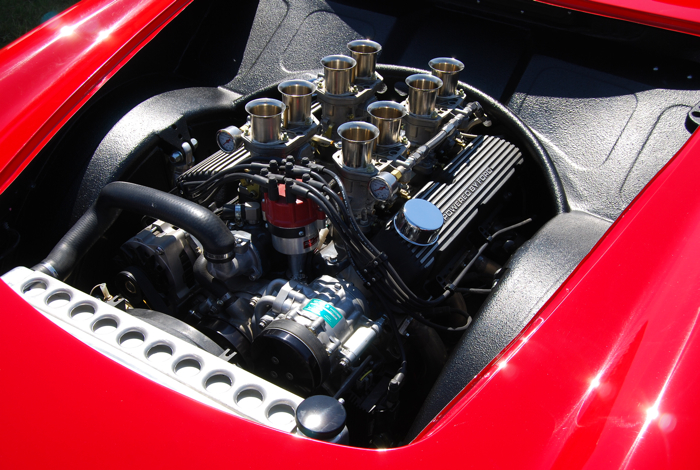Import Engines: A Comprehensive Guide to Discovering the Right Fit
Import Engines: A Comprehensive Guide to Discovering the Right Fit
Blog Article
A Detailed Contrast of Various Kinds Of Import Engines and Their Applications in Different Cars
From the effectiveness of turbocharged engines to the environmental kindness of electrical powertrains, the range of import engines available in today's market caters to a large selection of driving needs and choices. Whether it's the torque of a diesel engine or the unusual style of a rotating engine, comprehending the subtleties of each type and how they align with details automobile requirements can significantly influence efficiency, fuel economic climate, and overall driving experience.
Turbocharged Engines
Turbocharged engines, understood for their ability to enhance power outcome effectively, have actually come to be significantly common in modern automobile designs. By utilizing exhaust gases to drive a wind turbine that presses incoming air right into the engine, turbochargers efficiently enhance the amount of air and gas mix that can be ignited, causing improved efficiency without dramatically raising engine size. This innovation enables producers to scale down engines, resulting in much better fuel efficiency while keeping power levels similar to bigger, naturally aspirated engines.

Crossbreed Engines
With the developments in engine modern technology helping with improved efficiency and efficiency, the auto sector has actually seen an increase in the assimilation of crossbreed engines as a lasting service for power delivery. Crossbreed engines combine the benefits of both inner combustion engines and electric motors to offer enhanced gas performance and reduced exhausts. By seamlessly switching between both power sources or using them at the same time, hybrid engines supply versatility in numerous driving conditions.

Furthermore, hybrid technology is not restricted to a certain automobile type, with applications varying from compact sedans to bigger SUVs and even high-performance sporting activities vehicles. As environmental concerns and fuel performance laws become progressively famous, hybrid engines stand for a significant action towards lasting transportation options.
Electric Engines
Electric engines have actually reinvented the automotive market with their environmentally-friendly and effective power delivery systems. import engines. These engines operate by converting electrical energy into mechanical power, using a smooth and silent driving experience. Unlike conventional combustion engines, electrical engines produce no tailpipe exhausts, decreasing the total carbon impact of lorries and helping fight air pollution
One of the essential benefits of electrical engines is their high energy efficiency, typically converting over 80% of the electric energy into propulsion. This efficiency converts into cost financial savings for consumers via decreased fuel expenditures. Furthermore, electrical engines call for much less maintenance contrasted to interior burning engines, as they have less moving components that can break over time.
Electric engines are commonly made use of in electrical lorries (EVs) and crossbreed electrical cars (HEVs) On the various other hand, HEVs integrate electric engines with typical interior combustion engines to maximize fuel efficiency and lower exhausts.
Diesel Motor
Diesel motor are renowned for their exceptional fuel efficiency and durable performance in a variety of automobile applications. explanation These engines operate by pressing air in the cyndrical tubes, which brings about high temperature levels that spark the injected gasoline without the need for ignition system. This combustion method provides diesel engines with greater torque results contrasted to gas engines, making them optimal for heavy-duty cars like vehicles, buses, and building and construction tools.
Among the essential advantages of diesel engines is their remarkable gas efficiency, as they can take a trip farther on a gallon of gas compared to gasoline engines. This effectiveness is especially helpful for long-haul transport and business fleets, where decreasing fuel expenses is a significant variable. In addition, diesel engines are known for their resilience and long life, needing less maintenance over their lifespan compared to gas engines.
Recently, improvements in diesel engine innovation have actually also focused on decreasing exhausts to fulfill stringent ecological laws. Modern diesel motor are equipped with sophisticated emissions regulate systems, such as diesel particulate filters and selective catalytic reduction, which help decrease contaminants released right into the atmosphere - import engines. These advancements have actually made diesel motors cleaner and more eco-friendly while retaining their effectiveness and performance features
Rotary Engines
Popular for their one-of-a-kind design and performance features, rotary engines use a distinctive choice to conventional combustion engine innovations like diesel engines. These engines, additionally understood as Wankel engines, operate on a various principle compared to conventional piston engines.

Final Thought
In final thought, the contrast of various types of import engines highlights the diversity of choices available for different vehicles. Turbocharged engines offer enhanced power and performance, hybrid engines incorporate traditional and electric power sources for enhanced gas economic climate, electrical engines supply a clean and sustainable option, diesel engines are understood view it for their resilience and torque, and rotary engines offer an one-of-a-kind design with potential for high performance. Each engine kind has its very own toughness and applications in the automotive sector.
In addition, hybrid engines add to a quieter driving experience and usually offer a smoother velocity contrasted to standard interior combustion engines.
Distinguished for their special layout and performance characteristics, rotary engines use an unique alternative to traditional burning engine technologies like diesel engines. These engines, additionally known as Wankel engines, run on a various concept compared to conventional piston engines. Regardless of these constraints, rotary engines proceed to bring in enthusiasts and producers looking for a different engine innovation with unique advantages.
Turbocharged engines offer increased power and efficiency, hybrid engines integrate conventional and electric power resources for enhanced gas economic climate, electrical engines provide a clean and lasting option, diesel engines are known for their toughness and torque, and rotating engines offer an one-of-a-kind design with potential for high performance.
Report this page